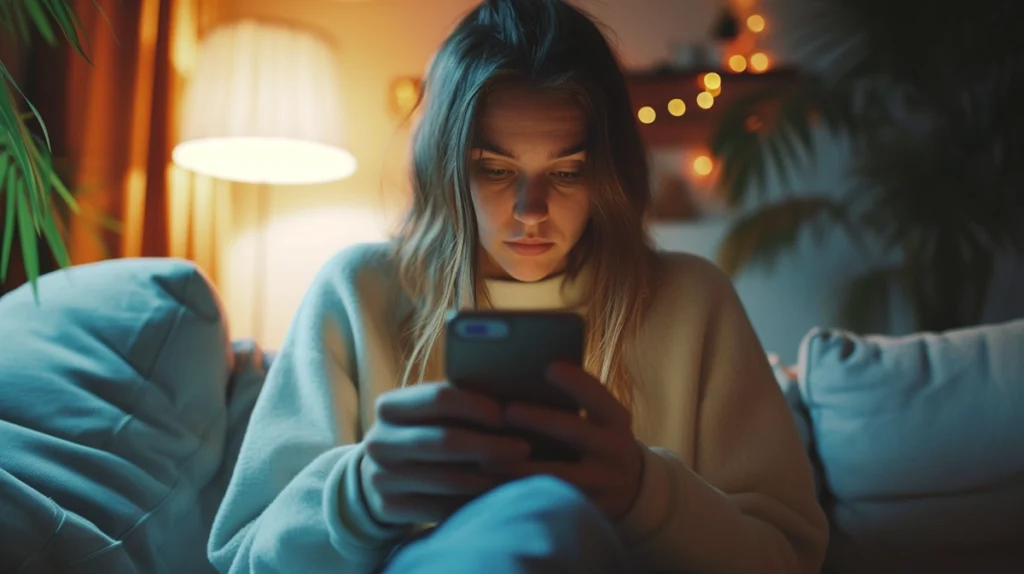
Consider the last time you scrolled through your social media feed; did you feel uplifted, or did it leave you feeling drained and dissatisfied?
You’re not alone. Recent studies suggest that there’s a significant link between heavy social media usage and an increase in mental health issues such as anxiety and depression.
But the real question is, how deep does this connection go, and what can we do to navigate these digital spaces more healthily?
It’s a complex issue, and one you’ll want to explore further.
Understanding Social Media’s Influence
To truly grasp how social media affects our mental health, you need to first understand its pervasive influence in our daily lives. It’s not just a platform for sharing selfies or posting updates, it’s a digital addiction that’s hard to shake off. You’re constantly plugged in, scrolling through feeds, liking posts, and commenting. It’s a virtual reality that sometimes feels more real than your physical world.
But social media isn’t just about harmless fun. It’s a platform for emotional exploitation, where likes and comments become a measure of your self-worth. You’re constantly comparing yourself to others, battling feelings of inadequacy and self-doubt. It’s a toxic environment that breeds negativity.
What’s more, this virtual world is rife with proliferated misinformation. You’re bombarded with fake news, distorting your perception of reality. It’s hard to distinguish truth from lies, creating a sense of confusion and mistrust.
And let’s not forget about privacy concerns. Every post, every like, every comment is stored and analyzed. You’re under constant surveillance, your privacy invaded. It’s a scary thought, isn’t it?
Social Media: A Double-Edged Sword
While it’s true that social media’s grip can be detrimental, it’s also a powerful tool for connection and self-expression. It brings us closer and gives us a platform to voice our thoughts. But, like a double-edged sword, it has its downsides too.
You’ve likely experienced or at least heard of cyberbullying. It’s a growing concern that can lead to severe emotional distress. The anonymity provided by the internet often emboldens individuals to say hurtful things they wouldn’t dare say face-to-face. It’s a stark reminder of the need for digital detox, to step back from the virtual world and reconnect with reality.
Social media’s ability to generate virtual validation can also spur emotional dependency. You might find yourself seeking approval from virtual friends and followers, your self-worth hinging on the number of ‘likes’ or comments you receive. This is a dangerous path that can severely affect your self-esteem.
The issue of privacy intrusion is ever-present. Your personal information can be exposed, your activities tracked, and your data mined. It’s a high price to pay for the sense of connection and self-expression it offers. Be mindful of your usage, and balance is key.
Impact on Adolescents’ Mental Health
Adolescents, who are still shaping their identities and grappling with societal expectations, often bear the brunt of social media’s negative impact on mental health. Their vulnerability, heightened by the quest for acceptance and validation, makes them susceptible to cyberbullying effects. The constant exposure to the polished lives of peers can lead to damaging comparisons. It’s a game nobody wins, as it often results in feelings of inadequacy and a dent in self-esteem.
The consequences don’t end at peer comparison. Digital addiction concerns are also on the rise among teenagers. You’ll find them constantly checking their phones, anxious about missing the latest updates. This incessant need for virtual engagement can disrupt their real-life interactions, schoolwork, and even sleep.
The impact on self-esteem is profound. The constant pursuit of likes, shares, and comments can make adolescents equate their worth to these virtual acknowledgments. When the expected validation doesn’t materialize, it can lead to feelings of disappointment, rejection, and lowered self-esteem.
In a nutshell, the impact of social media on adolescents’ mental health can be overwhelming, and it’s a concern that needs addressing.
Coping Strategies and Healthy Usage
Given these challenges, it’s crucial you understand how to navigate social media use in a healthier way and deploy effective coping strategies. Consider practicing Digital Detox, where you consciously limit your time online. This helps you break away from the constant digital stimulation, allowing your mind to reset and refocus.
Engaging in Mindful Scrolling is another effective technique. Rather than mindlessly scrolling through feeds, be intentional about what you consume. This means critically analyzing the content you come across and consciously choosing to interact with posts that add value or positivity to your life.
Achieving an Online Balance is also essential. This means balancing your time between online activities and real-world interactions. You shouldn’t let your virtual life overtake your actual life. Instead, strive to maintain a healthy divide between the two.
Foster Positive Interactions on social media platforms. Engage in constructive dialogues, share inspiring content, and make an effort to connect with people in a meaningful way. Avoid negative commentary and toxic users that can harm your mental well-being.
Lastly, incorporate Self Regulation Techniques. Set boundaries on your social media use, stick to allotted time slots, and use app features that help manage your screen time. These measures can go a long way in promoting your mental health.
Frequently Asked Questions
How Has the Pandemic Affected the Usage of Social Media and Its Impact on Mental Health?
During pandemic isolation, your screen time likely increased, potentially leading to social media addiction. Virtual learning’s impact may have heightened this, triggering anxiety without the usual in-person social interactions to balance it out.
What Are the Differences in Social Media’s Impact on Mental Health Between Genders?
You’ll find differences in how social media affects mental health between genders. Gender specific platforms, cyberbullying effects, body image pressures, emotional intelligence comparison, and gendered communication styles all play roles in these disparities.
Are There Any Cultural Variations in the Impact of Social Media on Mental Health?
Yes, cultural variations exist in social media’s impact on mental health. Cultural coping mechanisms, age-related impacts, and social media addiction differ. Cross-cultural comparisons are vital, as are therapeutic interventions tailored to specific cultures.
How Does the Impact of Social Media on Mental Health Compare to Traditional Media Forms Like Television or Print Media?
When comparing, you’ll find social media’s impact on mental health differs from traditional media. Internet addiction and cyberbullying prevalence are unique to social media, while traditional media’s influence is more passive in media consumption.
What Are Some Proposed Regulations or Laws to Manage the Negative Impact of Social Media on Mental Health?
You’ve asked about regulations for managing social media’s negative effects. Regulatory frameworks, cyberbullying legislation, parental controls, data privacy laws, and age restrictions are often proposed solutions to tackle these issues.
If you are in crisis or think you may have an emergency, call your doctor, go to the emergency room, or call 911 immediately. If you’re having suicidal thoughts, call 1-800-273-TALK (8255) to talk to a trained counselor.



